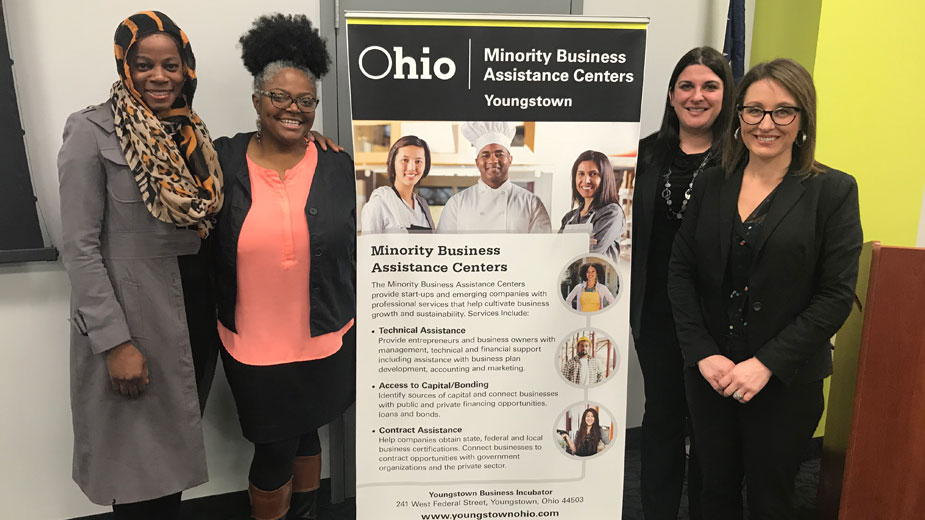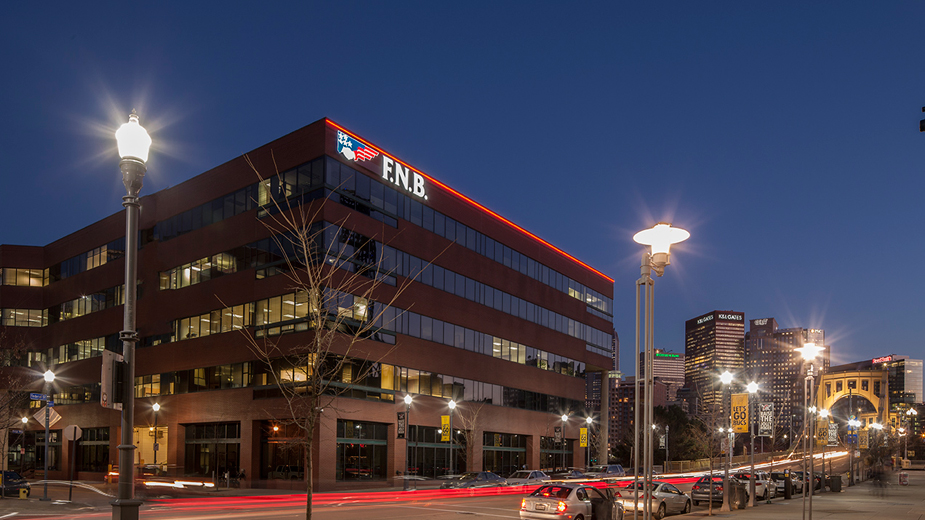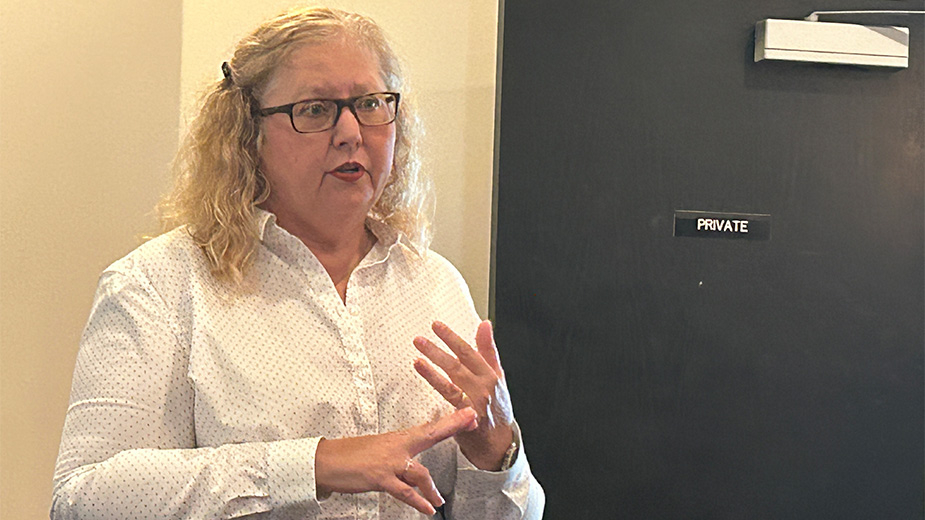Minority Business Owners Learn What Bankers Need
YOUNGSTOWN, Ohio – Not knowing what you don’t know is one of the biggest challenges for minority business owners when it comes to obtaining a small business loan, says Tara Murphy. “They have to start with the right resources,” she says. “All businesses are bankable. It may not be today, but you have to put a plan together and do the due diligence that is required to get there.”
Murphy, the Small Business Association business development officer for Huntington National Bank, discussed small business lending for minority business owners on Tuesday at the Youngstown Business Incubator. The information session, How to Prepare to Gain Access to Capital, was hosted by the YBI, Minority Business Assistance Centers and Huntington Bank.
A dozen minority small-business owners and entrepreneurs from a variety of industries attended the information session. Among some of the owners who attended were the operators of a bookstore, recovery services, a construction company and insurance company.
One of the business owners, Sadie Amaz, attended the session to learn how the bank can help her expand her business.
“I definitely need so much help,” Amaz says. She is looking to hire employees for her startup, Somebody’s Gotta Do It, a commercial and residential cleaning company. Currently, Amaz is doing all the cleaning herself and says it is becoming too hard to do alone.
“I clean up the worksites, I bring the equipment that I can and that’s where we’re struggling right now, that’s why I’m here,” she says. “There’s got to be a better way to do it. The qualified people are out there, so I’m here looking to get to those qualified people.”
Amaz, along with her husband, also operates Our Home Maintenance, a construction company, which inspired her to start the cleaning company, since she was always doing the cleaning on the worksites.
The session gave Amaz and the other owners insight into all the documents you need to have in place to have a favorable business loan application.
Among them are complete federal tax returns on the business and all of its owners for the last three years; interim financial statements; accounts receivable and accounts payable aging reports; a personal financial statement on all owners and guarantors; a resume for each owner and key management employees; company by-laws or operating agreement; items that may be required from the customer; cost quotes; and a copy of the lease.
“There’s a lot of homework that needs to be done to be able to obtain a small business loan,” Murphy says. “Fifty percent of the people I start talking to about starting a business, I never hear from again.”
Still, Murphy assures that the bank will work as a partner with the business owner to get all of the information if the owner is willing to put in the work.
“The opportunities are there, the access to capital is there, there’s just some requirements to get there,” she says. “Let’s start the conversation and sometimes it just takes time.”
When applying for a small business loan, the loan application should be easy to understand, clearly tell what the business does, introduce key owners/managers and explain their roles, describe the credit request and state how you will use the money.
“After taxes, you need to make $1.30 for every $1 in debt you’re requesting,” Murphy advises.
Your banker will then want to interview you on questions not answered in the application, “which may seem like the scary part,” Murphy says. “The bank is not the enemy. We are there to service you. We want to lend you money.”
Some of these questions may be: “How will the business repay the loan? How will you repay the loan if the business fails? Does the business have a profitable operating history?”
Another question the banker may be interested in is, “Who is your competition? That should be in your business plan,” she says. “Tell us who are your top three competitors.”
The bank will also evaluate you on the five C’s of credit: capacity/ability to repay; conditions; capital; collateral; character and experience.
“Typically they want to see three years of management in the industry,” Murphy says.
Huntington Bank partners with the SBA to offer 7(a) loans, 504 loans and express loans.
According to the U.S. Small Business Administration, Huntington is the No. 1 SBA lender in its eight-state region, which includes Illinois, Kentucky, Ohio, Michigan, West Virginia, western Pennsylvania and Wisconsin. It is also ranked No. 1 nationally in total number of SBA 7(a) loans and the bank lent 3,484 SBA loans in 2018.
SBA loans and lines of credit can be used for real estate, acquisition, startup, working capital, inventory and equipment purchases. The amount needed for a down payment may be less than a conventional bank loan.
For startups its usually 20%; acquisitions are 10%; and established businesses could be as little as 0% down.
“That would definitely put a smile on my face to hear that I may not have to put anything down to get a loan to be able to expand my company,” says Gary Reynolds Jr., who would like to turn his part-time business into a full-time operation.
Reynolds Jr. is the owner of Kickdrum Entertainment, which provides entertainment services for events, special lighting and insulation for sound systems.
“It is part time, which a lot of my business is on the weekend from Thursday through Sunday anyways,” he says. “It doesn’t inhibit me to work, but I feel like I can put more effort into my business and grow it faster if I had that time during the week.”
Reynolds Jr. says his biggest takeaway from Murphy was, “learning about the different loans that can definitely help benefit me for expanding with the option of possibly having 0% down,” he says. “There was a lot of good information today.”
Pictured: Sadie Amaz, owner of Somebody’s Gotta Do It and Our Home Maintenance; Carmella Williams, director of diversity and inclusion at the YBI; Melissa Thake, branch manager for Huntington; and Tara Murphy, SBA business development officer for Huntington.
Copyright 2024 The Business Journal, Youngstown, Ohio.



